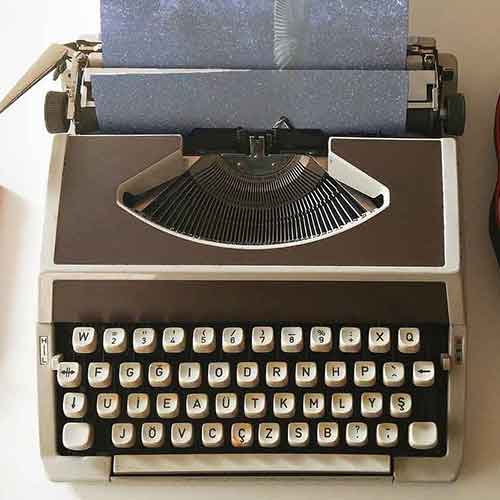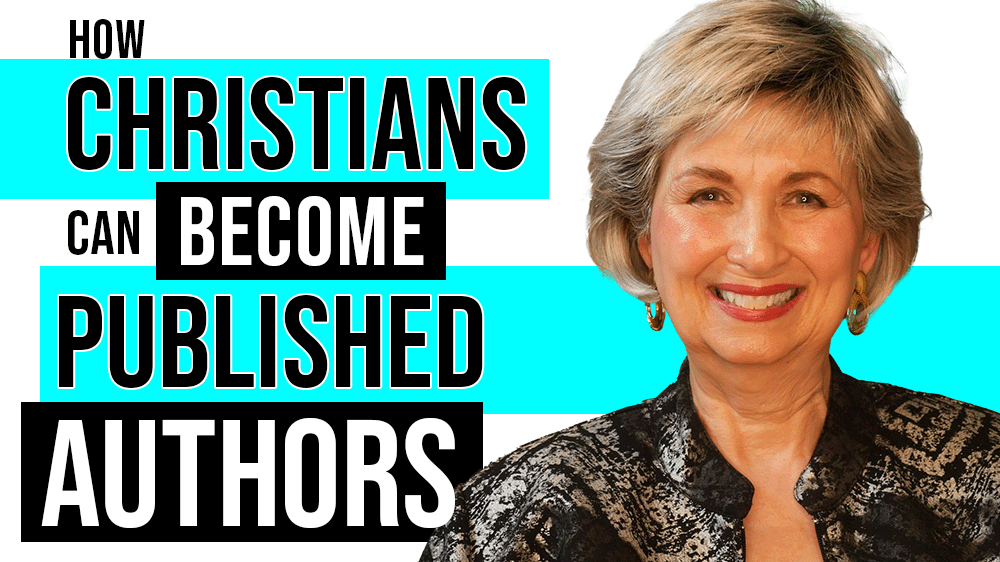Imagine the profound sense of achievement you will feel when you hold your next book in your hands—a tangible manifestation of your thoughts, heart, and soul. A dream come true!
It’s an exhilarating moment for any writer. But before that moment arrives, you face a crucial decision: Should you self-publish or team up with a traditional publisher?
In a previous blog, Self Publishing vs. Traditional Publishing, we explored the advantages of self-publishing and how the industry is expanding. Below we’ll discuss 7 reasons why you should also consider publishing your book with a traditional publishing house.
1. Professional Editing and Design

One of the key advantages of traditional publishing is the high standard of editing and design your book receives. Seasoned editors scrutinize your manuscript for grammar, style, and structural issues. Expert cover designers work to ensure your book visually stands out on a crowded bookstore shelf.
The professional touch a traditional publisher provides can make all the difference in the world of books, where quality and first impressions matter.
Editors who work with traditional publishing houses are the best in the industry. Years of working with authors and manuscripts has given them editorial instincts that will make your writing much better. They won’t change your words, or the meaning of your words, sentences, or paragraphs, without your written permission, and they’re super skilled at catching any and all inconsistencies. This type of editing can be expensive if you are forced to pay an editor for a self-published book.
2. Marketing and Publicity
Imagine a dedicated team toiling to get your book on the bestseller list, sending review copies to influential critics, organizing your book tour, and publicizing your work on social media. With a traditional publisher, that’s not just a fantasy; it’s reality. Their extensive resources and industry connections will give your book a leg up in a market that is highly competitive, often at no extra cost to you.
Here’s how it works.
When you land a contract with a traditional publisher, they’ll develop a promotional strategy that will give your book the best shot of getting into the hands of readers around the world. They usually begin promoting your book about 8 months before the book’s official release. They may run ads in newspapers and magazines or create sales packets to mail out. They may list your new book in literary journals, librarian trade magazines, and other places.
Keep in mind that some publishers promote books better than others. In fact, the sales of your book might depend less on the quality and execution of your writing and more on how hard the publishers promote it. Gone are the days when a writer’s only job was to write, and a publisher’s only job was to publish and promote. As the author, you are expected by the publisher to help promote the book through your established networks.
In my own experience, one of the best marketing and publicity benefits of publishing traditionally is the publicist who is hired to work with you, usually for the first three months after the release of your book. Sometimes publicists are inhouse, which means they work for the publisher. Other times, the publisher will outsource your publicist through a third party company. Either way, the benefits of having a publicist promoting your book is manifold. The publicist sets up television and radio talk show opportunities for you, arranges for book signing events at local bookstores, orchestrates speaking opportunities, assembles and distributes media kits, and so much more.
These days, securing a publicist through a traditional publisher is becoming less common as publishers expect their authors to actively promote their books through social media and other online venues. However, if you approach the right publisher with the right project, and if they assign a publicist to help promote your book, both you and your book will be better off because of it.
3. Industry Recognition, Credibility, Prestige, and Influence
Having your book published by a reputable publisher can open doors for you that otherwise might have been closed.
Traditional publishing confers credibility, and in many ways it can be a very validating experience for an author. Why? Because traditional publishers are companies, and highly competitive ones, too. And if a company chooses to spend tens of thousands of dollars to bring your book to life, they are essentially vouching for you. They are vouching for the quality of your ideas, thoughts, and writing ability, which sets you apart from other writers.

In many academic fields, traditional publishing is not only requested of all faculty members; it is required for tenure and promotion. That means the competition can be fierce, even within small academic publishers who offer limited print runs and low advance payments.
However, if the target audience of your book is wide enough, and if a traditional publisher greenlights your manuscript, don’t worry about the competition. Just focus on making your book the best product it can be.
Prestige, by the way, is highly subjective. Whether or not someone is prestigious depends largely upon the opinions of those who you ask.
But influence—that is a much more meaningful goal because it forces us to put our noses to the grind and write a book that’s worth the ink it’s printed on. Chasing prestige can be elusive, even vain, but if you strive to craft an influential book that has wide and deep appeal, your book will go farther in touching the lives of those who read it.
So before you begin writing your next book, be sure to have an honest self assessment. Check your motivation to make sure it aligns with your values and beliefs.
Traditional publishing often comes with high praise and industry recognition. This can open exciting doors of opportunity for you and introduce you to a community of esteemed authors. Plus, traditionally published books are more likely to be considered for major literary awards and reviews, which can further enhance your reputation.
4. Wide Distribution, Translation, and Rights Management
 Because traditional publishers have established relationships with booksellers, both brick-and-mortar and online, local and global, they can ensure that your book is stocked widely and prominently. This almost always ensures that your book will reach a far larger audience than you might have been able to achieve alone. Wider visibility is a good thing, and it almost always leads to selling more copies of your book.
Because traditional publishers have established relationships with booksellers, both brick-and-mortar and online, local and global, they can ensure that your book is stocked widely and prominently. This almost always ensures that your book will reach a far larger audience than you might have been able to achieve alone. Wider visibility is a good thing, and it almost always leads to selling more copies of your book.
Traditional publishers are skilled at navigating the complexities of international distribution, which vastly extends the reach of your book. This powerful distribution network is often inaccessible to independent authors who self-publish. And if your publisher opts to have your book translated for these international markets, get ready. Because this is a clear sign that the publisher believes your book can go the distance.
But the cost is not cheap for the publisher. Translating your book into different languages is a major undertaking. It basically involves the creation of a new book for every language. The publisher will need to access or conduct market research about your topic in that particular region of the world. They will need to hire a top-notch bilingual translator and often a team of editors to make sure that the meaning of your words is not lost in the process. To make the book more internationally marketable, the publisher will need to design a brand new cover, which often looks nothing like the original.
Traditional publishers handle all the many details involved in the translation and international distribution of your book, but they also offer the author another fantastic perk: the management of inventory and returns.
Once you’ve finished writing your book, after having sent the final typeset galley corrections back to your editor, the traditional publisher will handle the inventory, selling, and shipping of your book, making the process hassle-free for you, the author. If you’ve ever had to stock book inventory yourself—whether you’ve had to store them in a garage, in a walk-out attic, or in the trunk of your car—you know what a massive advantage it is to have someone else do this for you.
Remember, your book’s success isn’t determined solely by the quality of writing. The way it is distributed will often make or break its success.
Navigating the complexities of copyrights and subsidiary rights can also be overwhelming to the author. Traditional publishers are experts in these areas. During the publishing contract process, your agent can negotiate with your publisher to secure and manage film rights for your book. Having your book adapted for the silver screen is a sure-fire way to get your message in front of the widest possible audience. And even if the movie flops, or doesn’t live up to the book (they rarely do), the good news is that the movie will point people to your book, which will likely be reprinted with the movie poster as its front cover.
5. Advance Payments
 Unlike self-publishing, where you are responsible for covering all the costs upfront, traditional publishers will often offer you an advance against future royalties. That means you get paid for your hard work even before your book hits the shelves!
Unlike self-publishing, where you are responsible for covering all the costs upfront, traditional publishers will often offer you an advance against future royalties. That means you get paid for your hard work even before your book hits the shelves!
For many writers, that’s the ultimate dream—to be able to earn an healthy income solely from book advances. Think about that. How would your life be different if you were living exclusively off your writing income? How would your family’s life change?
How much do authors make from advance payments? Well, it depends on a wide spectrum of factors, including the popularity of your endorsers, the loyalty of your readership, and your previous book sales (the saying “you are only as good as your last book” applies here).
For a first-time author who does not have a strong platform, advance payments usually range between $1,500 and $3,500. I have worked with some publishers who offer no advance at all. But for successful authors who have an established sales record and an audience that is hungry for their next book, advance payments increase drastically to hundreds of thousands of dollars, even millions. It all depends on how strongly the publishing house believes in the monetary return of your book.
However large or small it may be, your advance payment will be likely split into thirds and paid to you after the signing of the contract, after the finished manuscript has been submitted, and after the release of your book.
Traditional publishers take huge risks when they contract to publish an author’s book, and much of the risk involves paying large advances. If the book doesn’t sell well for any reason, the publisher will lose money. There are ways for authors to lose their advance payments, but it usually involves not being able to complete a manuscript for whatever reason. In that case, you’ll probably have to return the sum of money paid to you. But the primary risk rests with the publisher.
In this very common scenario, you still get to keep the advance payment. Publishers often fail to make back their initial advance payments, absorbing the financial loss. In turn, this forces publishers to be more selective about the books they invest in, and it also forces authors to step up their game and write better book proposals.
There are many additional perks to receiving advance payments. Let’s say you need to travel to interview an expert for the book you’re working on. These days you can usually just Zoom the meeting. But being paid upfront allows you to buy plane tickets, pay for gasoline and other costs associated with your travel. Some authors use their advance to purchase a new computer, a new camera, perhaps even a writing cabin in the woods.
How would you spend your advance?
Better still, if the payment is large enough, it can free up your time and generate enough income for you to eliminate your day job and focus all your time, energy, and skills on writing your next book. Not only can advance payments help pay for research and travel costs, they can also cover photograph-rights, along with various
other fees you’ll be required to pay for copy-righted materials.
I remember having to pay $7,500 to incorporate a few quotes from a well-known public figure in one of the books I was writing. At the time, the advance payment allowed me to pay for the use of those quotes, which added to the impact of the book.
6. Ongoing Royalties
Ongoing royalty is one of the most satisfying advantages of choosing to publish your book with a traditional publisher. An ongoing royalty is the percentage of money you earn on the sale of your book. During the contract negotiation, the publisher will decide how high or low the percentage will be.
 The publisher may offer you an 8, 10, 15 or higher percentage. This is where literary agents really shine. Your literary agent can usually negotiate a much higher ongoing royalty rate for you. The more experienced the agent, the higher the percentage, usually.
The publisher may offer you an 8, 10, 15 or higher percentage. This is where literary agents really shine. Your literary agent can usually negotiate a much higher ongoing royalty rate for you. The more experienced the agent, the higher the percentage, usually.
Sometimes, the percentage of royalty is calculated on a sliding scale. When your book sales cross certain numeric thresholds, you earn a higher percentage of money. Whatever your percentage comes out to be, it’s the publisher’s job to keep up with how many books have sold, how much you’ve earned after the publisher has recouped the initial investment of your advance payment, and how often to cut you a check (usually twice a year).
Remember, after your book is released, the publisher won’t pay you your ongoing royalty payments until after the publisher has earned back the advance they paid you.
This is one of those glass-half-empty/full situations, and it depends entirely on your mindset. If you receive a very low advance, it can often signal that the publisher doesn’t believe the return will be much higher than the cost. In other words, low advances can sometimes mean the publisher doesn’t have much skin in the game.
But some authors prefer low advances because it means that they don’t have to wait long to receive ongoing royalties.
Let’s say a publisher gives you $3,500 up front. This may feel like an inadequate amount of money, especially if the first draft of the book you’re writing is going to take roughly six months to complete (that’s three separate payments of about $1,100 before taxes).
However, if you know that your book has wide market appeal and will sell quickly after its launch, your royalty checks will start coming to your mailbox much faster because it took less time for your publisher to earn back the $3,500 advance they paid you.
For someone who has the urge to write, there’s really no feeling in the world like earning residual income on the books you wrote, say fifteen years ago. And to earn royalties on multiple books over the years is even better! It will free you to spend more time writing, more time giving, more time doing what God has called you to do. And for this reason alone, it’s worth the time and energy it will take you to get your book published with a traditional publisher.
7. Author Support
Not only do traditional publishers handle many non-writing activities that you as an author must contend with, they also provide you with a support system designed to guide you through the publishing process. From the nitty-gritty of contract negotiation to the excitement of the book launch, when you choose to publish traditionally, you are never doing it alone. You become part of a team, a collaborative family that believes in your book as much as you do.
I’ve worked with some traditional publishers who provided extra attention to the development of my book’s key idea and premise. Other publishers have helped me choose what source materials to include in the manuscript. You might not require this help, but it’s always good to know it’s available to you.
My advice: befriend your editor. Your editor will assist and champion you when it feels like no one else will.

Traditional publishers know the publishing business very well—they live and breathe it. They know how to use their networks of influencers and promoters to set up you up for success. They’ll connect you with television talk show hosts, reviewers, celebrity personalities who can endorse your book. If you think that writing a book is the hard part, just wait until your traditional publisher puts you on a speaking schedule!
Traditional publishers are well-networked, and trust me, when it comes to promoting your book, it’s a full-time job. You’ll gratefully take all the help you can get.
Traditional publishers also know how to connect you to people who work in libraries, museums, and bookstores. I found this especially useful when writing for Penguin Random House. At the time, I was writing three WWII narrative nonfiction books, and after their releases the publisher made sure my books were placed in Holocaust and WWII museums throughout the world.
This is one of the biggest benefits of working with traditional publishers: They know how to reach your audience. They know how to get the message of your book into the hands and hearts of readers who are most interested in your subject matter.
Will I Have Creative Control?
Some writers enjoy having full creative control over the process of their books. If this is you, self-publishing might be a good option to consider. It can take time to learn how to work synergistically with a brand new team of people in the traditional publishing industry—people who make major decisions about your book, about your title, your cover, your choice of words, your chapter sequence, etc.
Let’s say the publisher wants to give your book a title you really don’t like. Guess who wins?
What happens to the advance if you honor the contract, deliver the book, agree to their revisions, do everything the contract requires, and the book still flops and does not sell?
Really good publishers will request your input. They might invite you to marketing meetings and listen intently as you list off the many reasons they should choose your book title. They’ll nod occasionally as you express your opinions. Perhaps they’ll even give you the illusion of options, asking you to select from several possible working titles they’ve pre-selected. But in the end, and remember this, the publisher has the final word.

The publisher is the one that took the financial risk, and the publisher is the one who calls the shots.
Let’s say your editor sends you a long list of revisions to make in the manuscript—and they usually do. Some revisions will really get under your skin, trust me. Can you argue with your editor about which revisions to make? Yes, of course. But when the dust settles, you will end up doing those revisions. Remember, you signed a contract giving them full creative control. In these moments, it’s helpful to keep in mind that your editor is a hired professional who landed this job at the publishing house for a reason.
Personally, I don’t mind giving creative control to a group of experts. Over the years, I’ve met extraordinarily talented editors, designers, and decision-makers who have taken my work to new heights.
Traditional publishers will make your book exponentially better. Yes, it will take more time to publish, and you’ll have to surrender control, but the end result will be worth it. Only very occasionally will traditional publishers produce a book that is lower in quality than one you could self-published. That is an extremely rare exception and shouldn’t be a discouraging factor in your attempts to publish your book traditionally.
Remember, publishing is a process. There’s a lot at stake, but you can trust the process. The process works.
Final Thoughts
While self-publishing provides greater control, it often lacks the broad reach of traditional publishing. If you’re looking to reach as wide an audience as possible, a traditional publisher might be the most beneficial path.
Over the course of my writing career, I’ve published 32 of my nonfiction books with traditional book publishers. Some have been self-help books, memoirs, stories and Bible studies. Others have been narrative nonfiction—true stories that read like novels. I’ve worked with small publishing houses and large ones, secular publishing houses like HarperCollins and Penguin Random House, and Christian publishing houses like Bethany House, Tyndale House, Zondervan, LifeWay, Broadman/Holman, and others. It has been a genuine blessing to have been able to develop good relationships with all my editors and publishers. Some of my books have yet to live up to their full potential. Others have become bestsellers that are currently being adapted into feature-length motion picture films. Here’s the bottom line: As long as I continue to write books—with some exceptions—I will always choose the traditional publisher over the self-publisher.

Remember, it’s not just about getting your book out there. Publishing your book is about weaving your story into the rich tapestry of literature. It’s about ensuring that your words, and your ideas, and your unique and beautiful perspective on life reaches the hearts and minds of readers throughout the world.
So take the risk. Allow a traditional publisher to guide your voyage into the literary world. Let them open wide the sails and generate unimaginable sales. Because what you’ll discover is that traditional publishers can transform your manuscript, not only into a beautifully bound book, a source of knowledge, and a work of art, they can also shape your words into a life raft for those who need it most.
See our Christian Writers for Life masterclass Traditional Publishing to learn more about the nuts and bolts of publishing your book with a tradition publishing house. Use code WRITENOW for 5% off your Lifetime membership.


Subscribe to our Free

Receive writing tips, links to exclusive “Q&A with Denise” sessions, information on upcoming events, and special discounts directly in your email.






